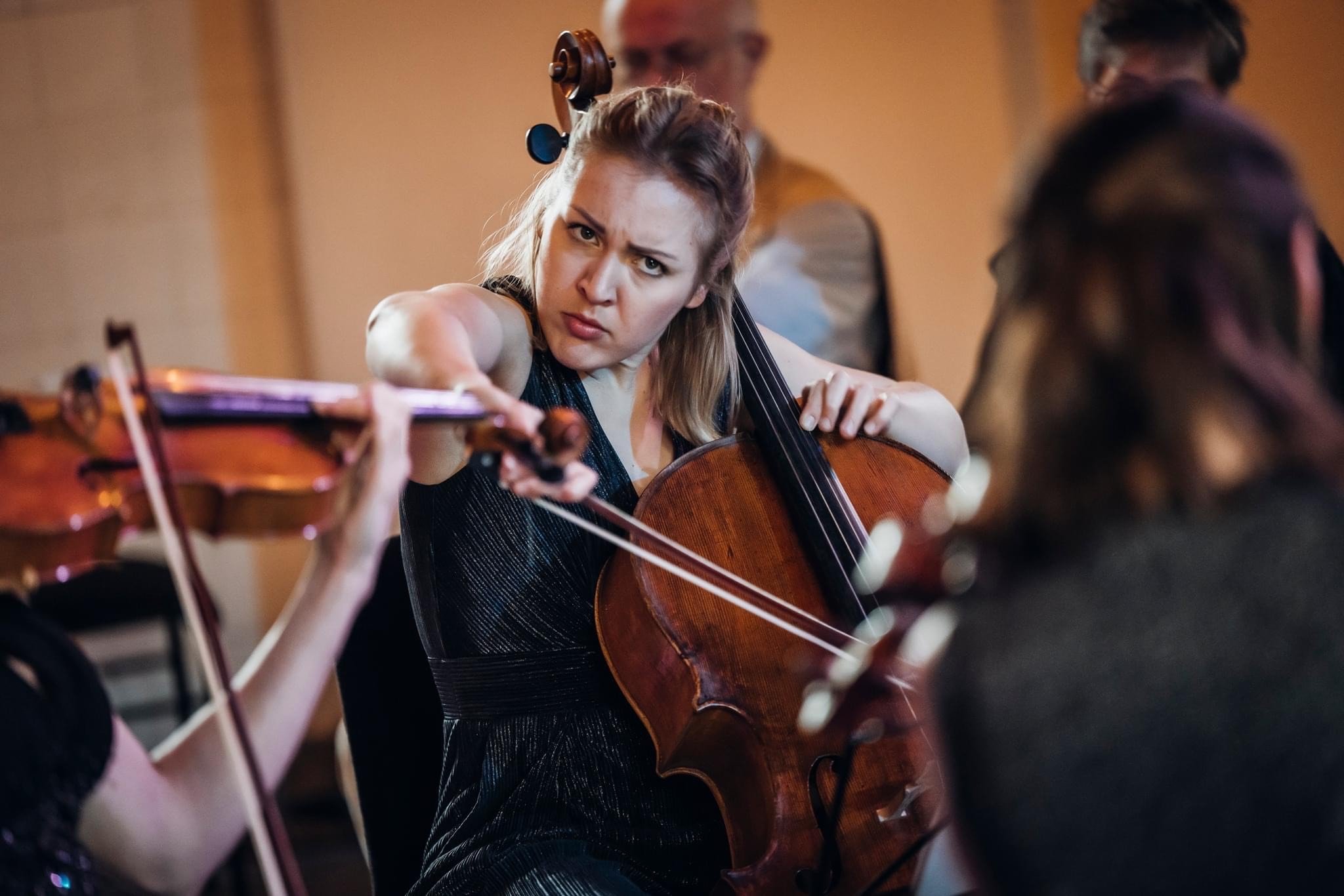
“SENJA RUMMUKAINEN
IS A FANTASTIC CELLIST.”
Göteborgs-Posten
Photo: Dave Van Hout
Reviews
-
"On Thursday evening, she surprised with the Scottish pianist Steven Osborne in the Cello Sonata op. 61 by Benjamin Britten. <… > Unbelievable power and intensity. How well-matched the pianist and cellist turned out to be, and how much they seemed to constantly challenge each other."
Brabant Cultural
-
"The highlight of the evening was still Senja Rummukainen's sensationally fine performance of Shostakovich's first cello concerto. Rarely do you hear such an emotional matter in the expression – which, however, never sounded the slightest exaggerated or forcibly suppressed – in combination with such exquisitely mastered sound and intonation care."
Huvudstadsbladet, Mats Liljeroos
-
"Senja Rummukainen is a fantastic cellist."
Göteborgs-Posten, Magnus Haglund

“…WIDE RANGE
OF EXPRESSION…”
Kulttuuritoimitus
Photo: Ama Viksten
-
"Senja Rummukainen presented her playing skills and the wide range of expression of her beautifully-sounding Stefano Scarambella cello in the turns of Tchaikovsky's Rococo Variations. In the first parts of the work, which opened loudly and clearly, the solo part was characterized by lightness and springiness. As the playing progressed, joyful playfulness could be heard, which deepened into expressive melodic lines and tight legatos."
Gikka Holmberg, Kulttuuritoimitus
-
"If I had to tell anyone what it means to "live through", I would urge you to listen to Rummukainen's presentation."
Helsingin Sanomat
-
"Her arresting lead-in to the scherzo brought playing of greater involvement, both here and in an Adagio whose autumnal eloquence never risked sentimentality. The relatively lengthy finale was securely rendered, its themes incisive then genial, and if the development culminated a little portentously, the reprise was tellingly subdued before a moving apotheosis and curtly inevitable coda."
arcana.fm

“…UNBELIEVABLE POWER
AND INTENSITY.”
Brabant Cultural
-
”I’m very glad this one did, a noble, eloquent account from Senja Rummukainen, with attractive, nicely varied, grainy tone and consistently musical phrasing drawing the listener in, greateful for the lack of exaggeration and histrionics, with a real sense of the composer’s personal regret (…)”
Colin’s Column
-
”There was no need to worry: she lived in every moment, the fantastical and the gruff as well as the introspective. True concerti collaborations don’t come along every week, but this was one, Oramo ensuring perfect repartee with Elgar's exquisite woodwind writing and his cellist listening to her fellow strings.”
The Arts Desk
-
"There was tenderness and sweetness of tone in the lento section and she delivered Elgar's ”nobilemente” melody on the final movement with such a poignant beauty that it was almost painful.”
Susanna Elkin

“…SHE LIVED IN
EVERY MOMENT…”
The Arts Desk
Photo: Dave van Hout